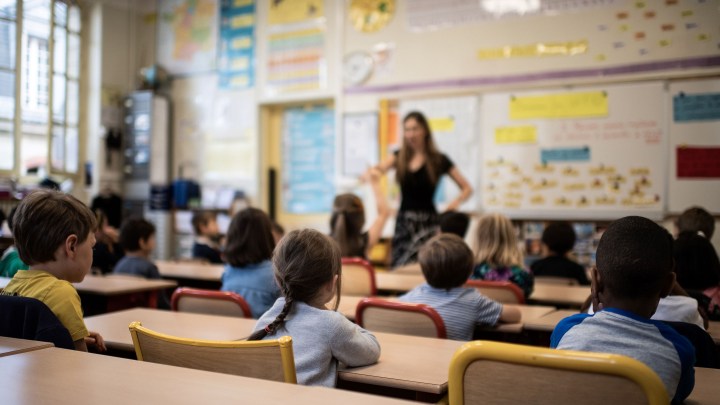
Supreme Court ruling gives LGBTQ educators protections at public and many private schools
Supreme Court ruling gives LGBTQ educators protections at public and many private schools

In a 6-3 decision issued on Monday, the Supreme Court affirmed that the federal anti-discrimination law originally enacted in 1964 protects LGBTQ people from discrimination in employment. The ruling holds that “sex discrimination” includes discrimination based on sexual orientation or gender. The decision will likely have far-reaching implications for people who work in education, including for teachers at both public and private schools.
With the decision that employers may not engage in gender-based discrimination against gay, lesbian, bisexual, queer and trans employees, “LGBT educators will finally have the protections they’ve always deserved, and be able to do their jobs free from fear,” said Eliza Byard, executive director of the education advocacy group GLSEN.
She said that, until now, LGBTQ teachers in more than half of U.S. states have had little or no legal protection from employment discrimination.
“We had an example of a teacher of the year in Texas suspended for having come out to students in her classroom because they asked about a picture of her spouse,” Byard said.
The Supreme Court’s decision will cover teachers and administrators employed by public and charter schools, as well as many private schools. But there’s a clear carve-out for religious employers, said California State University Long Beach legal scholar Jason Whitehead.
“Justice Gorsuch’s majority opinion does acknowledge that churches are exempt from many federal civil rights laws,” Whitehead said.
That’ll likely include most private religious schools.
“Certainly this won’t reach into any sort of parochial school environment,” said Tom Prol, who teaches law and sexuality at Seton Hall University and is an advocate for LGBTQ employment protections. “There is a law, a federal law on the books, the Religious Freedom Restoration Act — that certainly would protect religious institutions in this regard, they’ll be free to discriminate, as it were.”
Meanwhile, in the wake of yesterday’s Supreme Court decision, Trump administration Education Secretary Betsy DeVos faces increasing pressure to issue new federal guidance protecting LGBTQ teachers and students from gender-based discrimination.
There’s a lot happening in the world. Through it all, Marketplace is here for you.
You rely on Marketplace to break down the world’s events and tell you how it affects you in a fact-based, approachable way. We rely on your financial support to keep making that possible.
Your donation today powers the independent journalism that you rely on. For just $5/month, you can help sustain Marketplace so we can keep reporting on the things that matter to you.

















